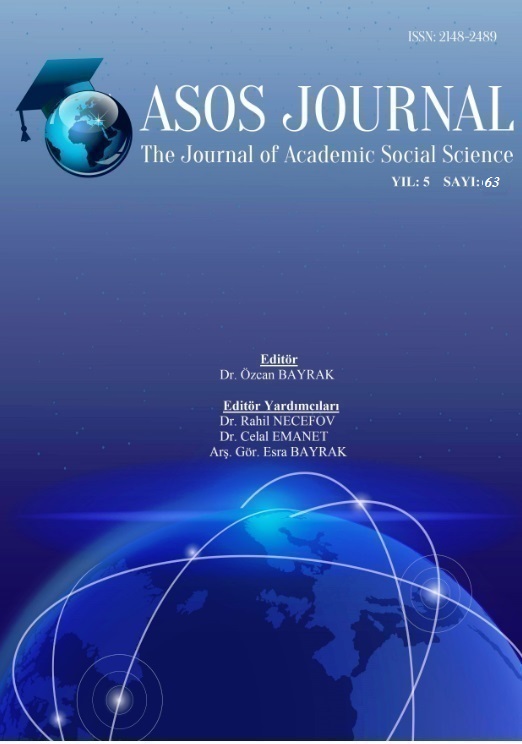Author :
Abstract
Konusu ne olursa olsun neredeyse tüm dramatik hikâyeler bir “arayış” yolculuğunun ifadesidir. Yolculuk hikâyelerine temel teşkil eden en temel “arayış” sembollerinden biri kuşkusuz “ölümsüzlük” arayışıdır. Ölümsüzlük mutlak varlığın anlamını kuşanmadır. Ölümsüz olan yaratıcının sırrına ermektir. Bugün güzel ve güçlü, yarın, zayıf ve perişan olacak olan bedenin imkânlarını zorlamaktır. Yapıp ettiklerinin silinip gitmesine dayanamayan sanatkâr insanın isyanıdır. Bu arayış aslında varoluşsal bir sorun olan hayatın anlamını sorgulamadır. En eski destanlardan günümüze pek çok eserde bu temanın işlenişini görmek mümkündür. Bu çalışmada, Gılgamış Destanı ve Ahmedî’nin İskendernâme’sinden hareketle dinler tarihinden mitolojiye uzanan anlam arayışı “ölüm/ölümsüzlük” teması çerçevesinde karşılaştırmalı olarak ele alınacaktır. Çalışmada ayrıca, “ölümsüzlük”le ilgili sembol dili, metaforik alegorik ifade kalıpları irdelenerek bu ortak kalıpların kültürler, diller, dinler arası dönüşümü karşılaştırmalı olarak incelenecektir.
Keywords
Abstract
Whatever the subject is almost all the dramatic stories are the expressions of a journey of “searching”. One of the most basic “searching” symbols which are the basis of traveling stories is no doubt the search for “immortality”. Immortality surrounds the meaning of absolute existence. It is the reaching to the secret of the one who is immortal. It is the forcing of the possibilities of the body which will be beautiful and strong today and weak and miserable tomorrow. It is the rebellion of the artisan human who can not bare the wiping away of the things his/her done. This searching, actually, is the interrogation of the meaning of life which is a existential problem. It is possible to see processing of this theme from the oldest epics to this day. In this study, with reference to epic of Gilgamesh and İskendernâme of Ahmedî, the search for meaning which go down from history of religions to mythology is going to be considered within the theme of “death/immortality” comparatively. In the study, also, by examining the symbol language related to “immortality”, metaphorical, allegorical expression forms, it is going to be examined the transformation between cultures, languages, religions of these common forms comparatively.
